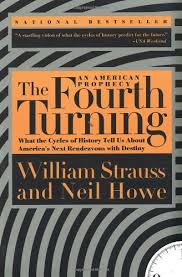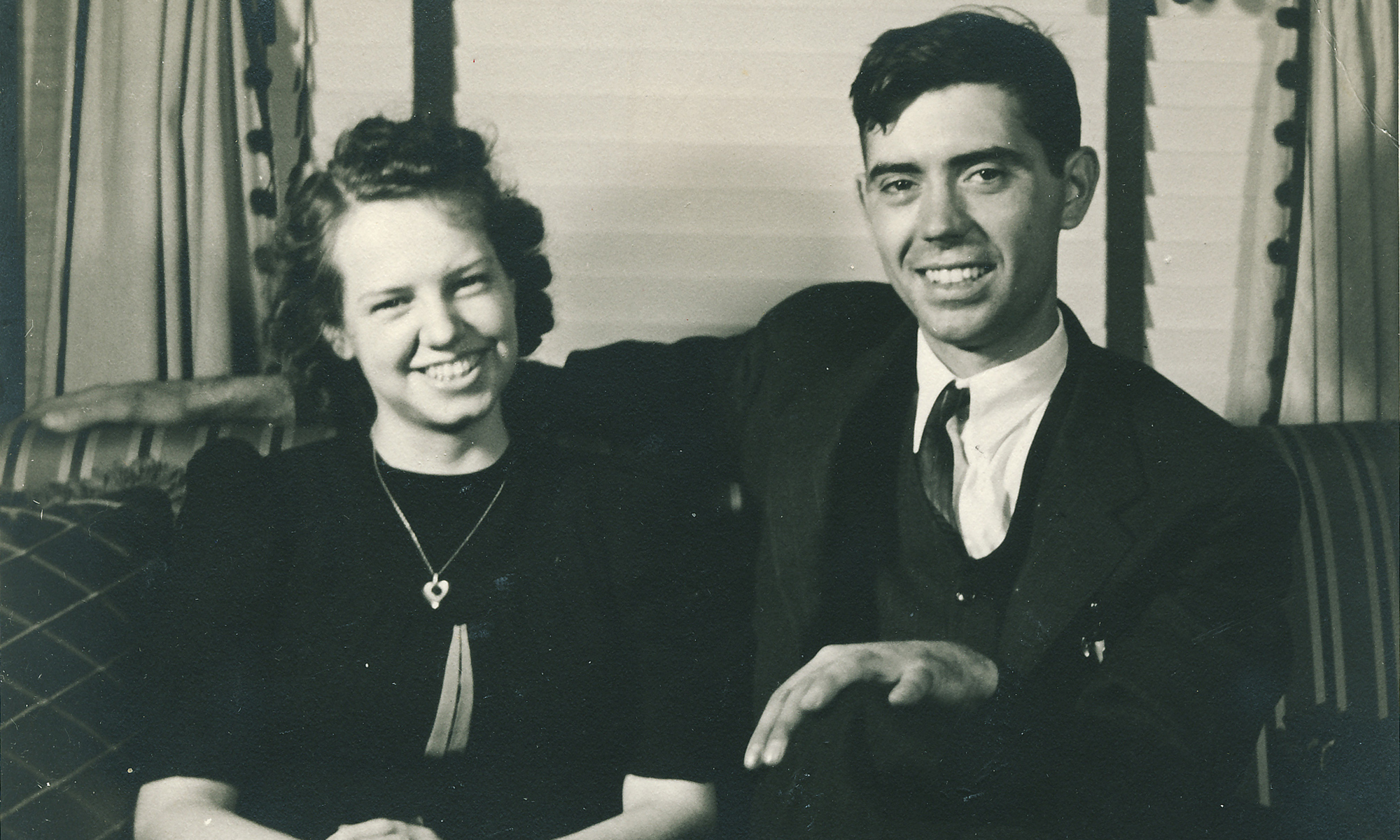A few years ago I ran across an idea espoused by William Strauss and Neil Howe that history repeatedly runs in a four-season pattern spanning about eighty years. Every winter of that cycle is marked by a crisis. Recent winters have included the American Revolution (1770s-80s), the Civil War (1860s), and the Great Depression/WWII (1930s-40s), all about eighty years apart.
It’s an interesting interpretation of events that believes that the cycling of four generational types (heroes, artists, prophets, and nomads) through their stages of life (childhood, early adulthood, maturity, elder years) creates a recurring pattern of crises and awakenings in history. In effect, the theory says that history isn’t linear, like we may have been taught. It’s cyclical, moving forward in time like the turning of a screw.
According to the theory, the 20-year generational seasons show a pattern of growing trust in collective governmental institutions (such as we saw in the last crisis of the Depression and World War II),  followed by conformity to the institutions (as exemplified by the Organization Man of the late 1940’s-early 60’s), then a rebellion against institutions (seen in the cultural upheaval of the 1960’s-80’s), and eventually distrust and unraveling of institutions (as seen in the individualism, bitter partisanship, and distrust of government of recent years). Stauss and Howe point out in their book The Fourth Turning, that we have gone through the first three seasons and are now poised to head into the next major crisis.
followed by conformity to the institutions (as exemplified by the Organization Man of the late 1940’s-early 60’s), then a rebellion against institutions (seen in the cultural upheaval of the 1960’s-80’s), and eventually distrust and unraveling of institutions (as seen in the individualism, bitter partisanship, and distrust of government of recent years). Stauss and Howe point out in their book The Fourth Turning, that we have gone through the first three seasons and are now poised to head into the next major crisis.
They argue the case pretty convincingly, citing instances of this recurring pattern in America since it’s inception, and in the West since the Renaissance. The idea has a certain innate attraction in that it mirrors the natural order of seasons and the cyclical nature of economics and politics we observe throughout life.
If their theory is correct, the recent political partisanship and dysfunctional government was inevitable. We needn’t wonder about the widespread distrust and disdain of our institutions, they are all symptoms of an inexorable season of unraveling. Unfortunately, what we have to look forward to is even worse: an economic, environmental, political, and/or military crisis that will result in a rebirth or in destruction. We’ve been fortunate in previous crises to have wise and temperate leadership. I’m not sure we’re as well positioned for the next.
Do I buy into this concept of generational history? Some of it makes sense. One only has to look at our inability to learn from the past and our tendency to repeat its mistakes to see that history isn’t linear. Time is not a long march of progress, but a meandering journey through wars, renaissance, repression, and rebirth. Whether this is a random walk or the cyclical path proposed by Strauss and Howe is hard to say. History, unlike physics or chemistry, doesn’t appear to be a science governed by immutable laws.
And yet, this is great food for thought. The study of history is man’s attempt to make sense of man: figure out how we got here, what we’re doing now, and where we’re headed. I recommend a reading of the book or a perusal of articles on the theory.
The concept of generational history could also open an avenue of exploration into family history that looks at our ancestors through the lens of generational types (heroes, artists, etc.) to see if our forefathers and mothers really do display the predicted generational traits. That analysis is for another time, though.
More information on the concept of generational history can be found on Wikipedia, the book’s website, or a recent Forbes magazine article, among other sources.
